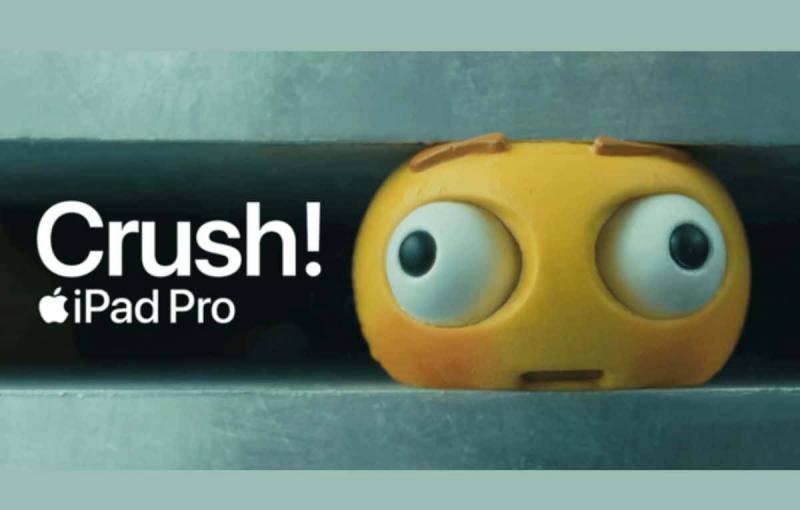In a surprising turn of events, Apple has issued an apology following an intense backlash over a promotional video for their new iPad, which drew criticism from actors, writers, and directors across Hollywood. The controversy erupted when Tor Myhren, Vice President of Marketing Communications at the tech giant, admitted the company's mistake in a statement to Ad Age. Myhren emphasized that creativity is at the core of Apple's DNA, highlighting the company's dedication to designing products that empower creators worldwide. However, he acknowledged that the intended message of the video — to celebrate the diverse ways users express themselves and bring ideas to life through the iPad — missed the mark, leading to the company's apology.
The announcement comes after Apple CEO Tim Cook shared the contentious ad on the X platform, featuring a massive machine that grinds up musical instruments, vinyl records, and other items symbolic of human creativity, only to reveal the new, ultra-thin iPad Pro. The ad, intended to showcase the iPad Pro as the pinnacle of technological advancement, instead angered many in the creative community who viewed it as glorifying artificial intelligence at the expense of human creativity.
Among the critics was British actor Hugh Grant, who lambasted the ad on X for depicting the destruction of the human experience courtesy of Silicon Valley. Similarly, Ed Solomon, screenwriter of 'Men in Black,' mocked the advertisement on Twitter, questioning the value of human life and creativity in the face of such technological arrogance.
Despite the outcry, Cook has not deleted the original tweet, nor has he made any public statement regarding the company's apology. The video remains viewable on his X account, continuing to stir controversy.
The backlash reflects broader concerns in the artistic community about the impact of artificial intelligence, particularly generative AI, on creative professions. Hollywood actors and scriptwriters have previously gone on months-long strikes, demanding protection from AI that can produce various content types on command. Furthermore, authors and artists have sued major companies, including OpenAI (the creators of ChatGPT), accusing them of using their works without permission to train AI models.
Apple's brief mention of AI in their recent statement did little to address these underlying fears, leaving many to wonder how the unfolding dialogue between technology and creativity will shape the future of the arts.



